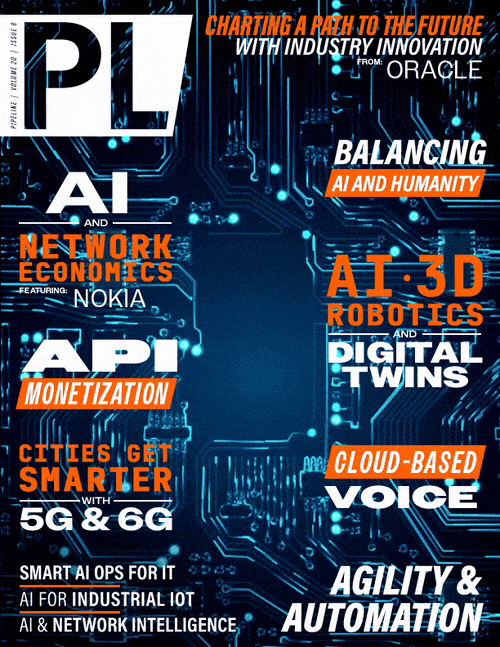How Digital Twins, 3D AI, RPA, and Immersive
Reality Tech Are Modernizing Industries
The Role of Advanced Tech
in Smart Factories
Automation has been a cornerstone of manufacturing for decades, enabling companies to achieve higher levels of efficiency, consistency, and quality. By integrating automated systems, manufacturers can streamline operations, reduce human error, and ensure consistent output.
Automated systems can handle repetitive tasks such as assembly, packaging, and quality control, freeing up human workers to focus on more complex and creative tasks. Automation systems also generate vast amounts of data that can be analyzed to optimize processes, predict maintenance needs, and improve overall efficiency. What’s more, these systems can be scaled up or down based on production demands, providing manufacturers with the flexibility to respond to market changes quickly.
The integration of cobots, automation, and AI is at the heart of the smart factory revolution. This trifecta not only enhances efficiency and productivity but also empowers manufacturers to innovate and adapt in an increasingly competitive global market. Smart factories can optimize resource usage, reduce waste, and lower energy consumption, contributing to sustainability goals. As we move further into the era of Industry 4.0, the adoption of these technologies will be crucial for companies looking to stay ahead of the curve and achieve long-term success.
Immersive Reality Tech: Transforming Training and Maintenance
Immersive reality technologies, including virtual reality (VR) and augmented reality (AR), are offering new ways for manufacturers to train employees, conduct maintenance, and enhance overall operational efficiency.
In the heavy machinery industry, VR is being used to train operators and maintenance personnel. By simulating real-world scenarios in a virtual environment, workers can gain hands-on experience without the risks associated with on-the-job training. This not only improves skill levels but also reduces the likelihood of accidents and equipment damage.
AR is playing a crucial role in maintenance and repair operations across various manufacturing sectors. For instance, in the oil and gas industry, AR headsets provide technicians with real-time information and guidance, overlaying digital instructions onto physical equipment. This enables faster and more accurate repairs, minimizing downtime and operational disruptions.
Synergy of Technologies: The Smart Factory of the Future
The true potential of these technologies is realized when they converge to create a smart factory ecosystem. In such an environment, Digital Twins, 3D AI, robotics automation, and immersive reality tech work in unison, enabling a seamless flow of data and operations.
Consider a smart factory in the automotive sector. Digital Twins provide a virtual replica of the entire production line, 3D AI optimizes the design of car components, robotics automation ensures precise and efficient assembly, and AR assists maintenance teams with real-time information. The result is a highly efficient, flexible, and resilient manufacturing operation capable of quickly adapting to changing market demands.
The integration of Digital Twins, 3D AI, robotics automation, and immersive reality technologies is modernizing manufacturing across various industries. These advancements are driving significant improvements in efficiency, precision, and sustainability, while also enhancing safety and operational flexibility. As these technologies continue to evolve, they will undoubtedly unlock new possibilities and further transform the manufacturing landscape, paving the way for a future where smart factories are the norm and innovation is the key to competitiveness. The manufacturers who embrace these technologies today will be the leaders of tomorrow, setting new standards for excellence in industrial operations.



















